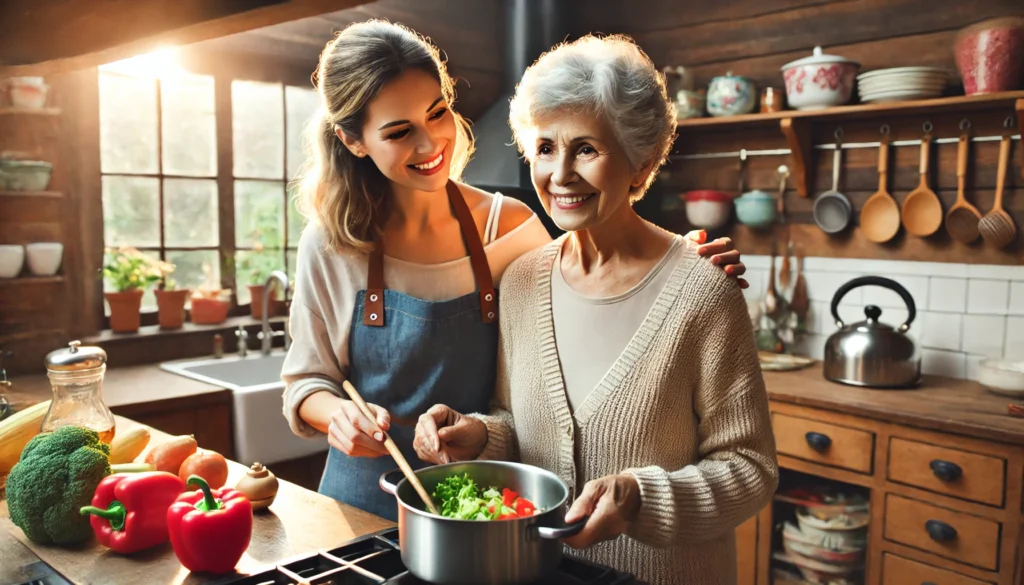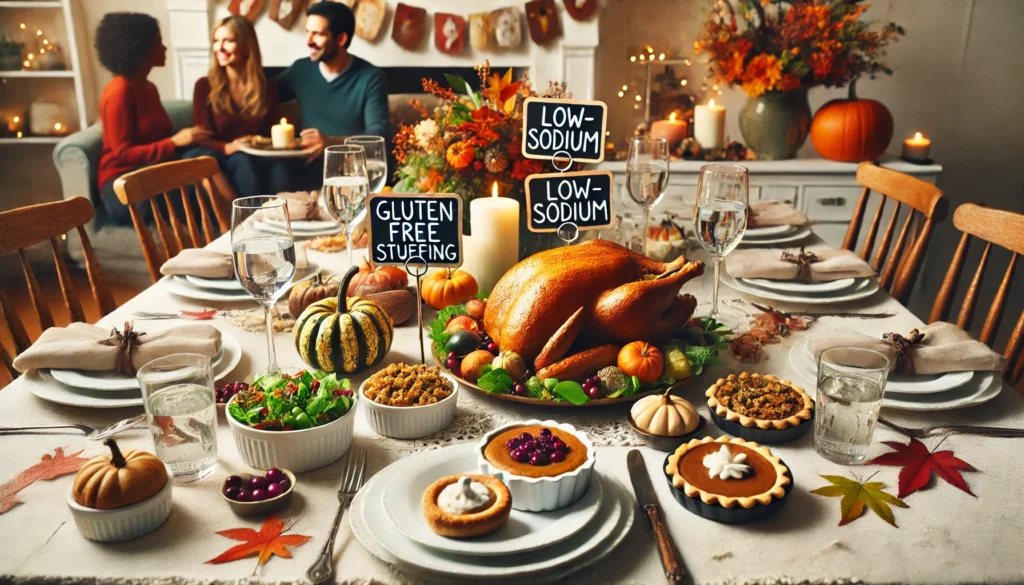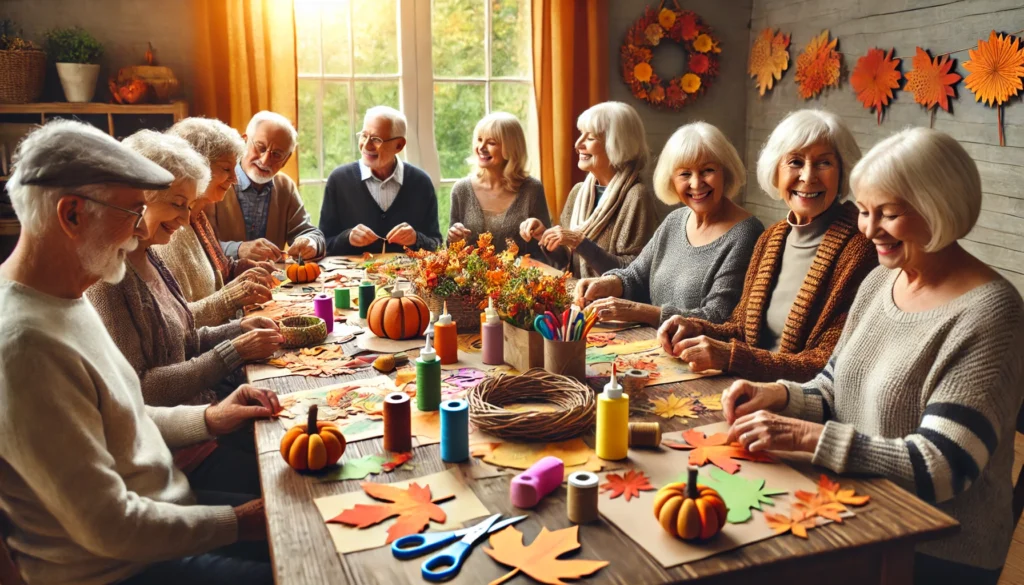
Thanksgiving is a cherished holiday filled with gratitude, delicious food, and cherished traditions. However, for seniors in care facilities or those receiving home care, celebrating Thanksgiving can sometimes be challenging. The season can evoke mixed emotions—fond memories of family gatherings alongside the reality of limited mobility, cognitive changes, or being away from loved ones. For caregivers, Thanksgiving presents an opportunity to create meaningful moments that honor traditions and nurture a sense of belonging for seniors.
This blog explores how caregivers can make Thanksgiving special for seniors, highlighting ways to adapt traditions, foster connection, and embrace gratitude during this meaningful holiday.

The Importance of Thanksgiving for Seniors
Thanksgiving is more than a meal—it’s a time for reflection, connection, and appreciation. For seniors, this holiday can hold deep personal significance:
Preserving Memories and Traditions: Many seniors have decades of Thanksgiving memories, from preparing favorite recipes to hosting family gatherings. These traditions are a vital part of their identity.
Fostering Gratitude: Reflecting on life’s blessings can improve emotional well-being, especially for older adults navigating life transitions or health challenges.
Reducing Loneliness: Isolation is a common challenge for seniors, particularly during holidays. Thanksgiving offers an opportunity to connect, whether with family, friends, or caregivers.

Challenges of Thanksgiving in Senior Care
Seniors and their caregivers may face unique challenges when celebrating Thanksgiving:
Health Restrictions: Dietary restrictions, mobility issues, or chronic conditions can limit traditional Thanksgiving activities.
Emotional Struggles: Seniors may feel sadness or nostalgia, especially if they are unable to spend the day with family.
Logistical Barriers: Travel limitations, caregiving schedules, and family dynamics can complicate holiday plans.
By understanding these challenges, caregivers can take proactive steps to ensure Thanksgiving is joyful and inclusive.

Creating a Meaningful Thanksgiving Experience
Adapt Traditional Meals
Thanksgiving meals are often central to the celebration, but seniors may have dietary needs that require adjustments. Caregivers can help by:
Modifying Recipes: Offer low-sodium or diabetic-friendly versions of traditional dishes like mashed potatoes, stuffing, and desserts. For example, replace heavy cream with low-fat milk or use sugar substitutes in pies.
Including Seniors in Meal Prep: Even small tasks, like peeling vegetables or stirring ingredients, can make seniors feel involved and connected to the tradition.
Offering Portion Control: Serve smaller portions to accommodate reduced appetites or medical guidelines.
Incorporate Familiar Traditions
Familiar traditions can evoke happy memories and create a sense of continuity. Caregivers can:
Decorate Together: Involve seniors in creating Thanksgiving-themed decorations like centerpieces, table settings, or crafts.
Share Family Recipes: Ask seniors to share their favorite Thanksgiving recipes or stories about past celebrations.
Play Holiday Music: Songs or hymns associated with Thanksgiving can create a warm and festive atmosphere.
Foster Social Connection
Combatting loneliness is especially important during the holidays. Caregivers can help seniors connect with loved ones by:
Hosting Virtual Gatherings: For seniors unable to travel, video calls can bring family members together.
Arranging Visits: Coordinate with family members or friends to schedule in-person visits, even if they’re brief.
Encouraging Group Activities: In senior living facilities, group activities like shared meals, games, or sing-alongs can foster camaraderie.
Express Gratitude
Gratitude is at the heart of Thanksgiving, and seniors often have a wealth of wisdom to share. Caregivers can encourage gratitude by:
Creating a Gratitude Tree: Have seniors write down things they’re thankful for on paper leaves and attach them to a decorative tree.
Sharing Stories: Ask seniors to reflect on moments they’re grateful for, from childhood memories to recent joys.
Expressing Appreciation: Caregivers can take time to thank seniors for their stories, resilience, and contributions.

Activities to Engage Seniors During Thanksgiving
Engaging activities can enrich the Thanksgiving experience for seniors. Here are some ideas caregivers can try:
Thanksgiving Crafts
Create handmade cards to send to loved ones.
Make festive decorations like paper turkeys or autumn wreaths.
Storytelling and Reminiscing
Organize a storytelling circle where seniors can share their favorite Thanksgiving memories.
Look through old photo albums to spark conversations.
Cooking Demonstrations
Host a small cooking class featuring traditional dishes or snacks.
Encourage seniors to teach their favorite recipes to caregivers or fellow residents.
Games and Puzzles
Play Thanksgiving-themed trivia or bingo.
Work on autumn-themed jigsaw puzzles as a group.
Outdoor Activities
Take a walk to enjoy the fall foliage, weather permitting.
Host a small outdoor gathering with warm drinks and seasonal treats.

Supporting Caregivers During Thanksgiving
Caregivers often go above and beyond to make holidays special for seniors, but they also need support and appreciation. Acknowledging their efforts is vital:
Practice Self-Care: Caregiving can be demanding, especially during holidays. Encourage caregivers to take breaks, set boundaries, and prioritize their own well-being.
Seek Family Involvement: Family members can help by visiting, sharing caregiving responsibilities, or simply expressing gratitude to caregivers.
Acknowledge Their Contribution: Thank caregivers for their hard work and dedication in making Thanksgiving memorable for seniors.

Final Thoughts: Gratitude and Togetherness
Thanksgiving in senior care is an opportunity to honor the past while creating new memories. Caregivers play a crucial role in making the holiday meaningful, from adapting traditions to fostering social connection and expressing gratitude.
Whether through a shared meal, a heartfelt conversation, or a creative activity, the small gestures of caregivers can make a big difference in the lives of seniors. As we celebrate Thanksgiving, let’s remember to extend our gratitude not only to seniors but also to the caregivers who enrich their lives every day.
By embracing the spirit of Thanksgiving—gratitude, connection, and togetherness—we can ensure that seniors feel valued, loved, and included during this special time of year.